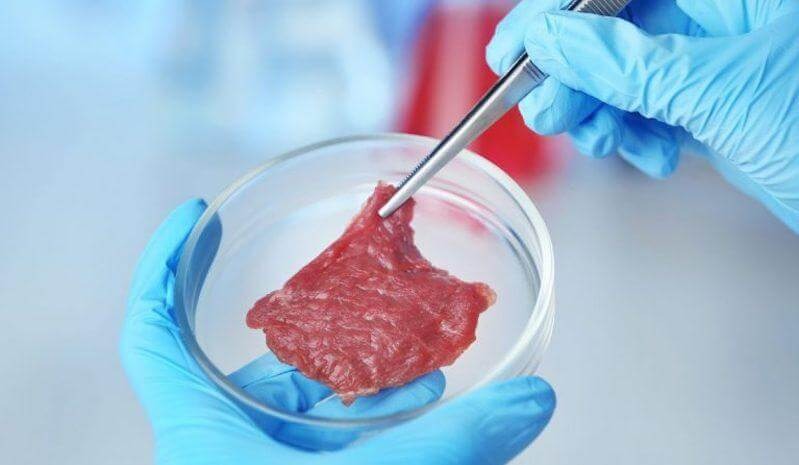A recent report by the London-based Chatham House shows that a new generation of cultured meat and plant-based meat products have the potential of changing our indulgence in slaughtered meat and contribute to the fight against climate change. “We are interested in meat analogues because they have the potential to change the history of animal agriculture. Technology presents us with the opportunity to make intense animal agriculture obsolete and to make us rethink our relationship with animals,” says Olga Kikou at Compassion in World Farming EU, an international animal welfare organisation which is campaigning to end all factory farming practices.
According to Chatham House’s research paper, consensus is building across the scientific, environmental and public health communities that a radical shift away from excessive meat-eating patterns is urgently needed to tackle the unsustainability of the livestock sector.
Meat analogues – plant-based “meat” and cultured meat – mark a departure from traditional meat alternatives. Both are intended to be indistinguishable from – and, in the case of cultured meat, biologically equivalent to – animal-derived meat and are marketed principally at meat eaters.
Meat production is a principal driver of environmental change and natural resource depletion, says the report. The livestock industry uses an estimated 70 per cent of the world’s land, 40 per cent of global arable land, 36 per cent of crop calories produced and 27 per cent of total freshwater resources, and accounts for around 14.5 per cent of all human greenhouse gas emissions.
To meet global climate targets, per capita consumption of meat would need to fall drastically: the average global citizen would need to eat 75 per cent less red meat, while citizens of the western hemisphere would need to reduce consumption by 90 per cent.
Excessive levels of individual meat consumption are associated with overweight, obesity and diet related non-communicable diseases, including cardiovascular disease, type-2 diabetes and certain cancers, warns the report.
In 2018, an open public consultation carried out by the European Commission in member states showed that over 80 per cent of respondents were willing to “consider the impact of their food purchases on greenhouse gas emissions’ and 74 per cent would ‘consider changing their diets”.
As previously reported by The Brussels Times, a survey that was carried out by GAIA, a Belgian animal welfare organisation, showed that that some 42% of Belgians appear to be in favour and 39% say they are willing to buy cultured meat if it were available at the same price as meat from slaughtered animals. A quarter (24%) were even willing to pay up to 10% more.
Meat analogues are produced from plant or animal cells cultured in a laboratory or bioreactor. Shifts in dietary habits towards vegetarianism and a reduction in meat consumption have been a major driver behind the launch of meat analogues.
But deep-set personal preferences for meat in Europe are nevertheless expected to present a significant obstacle to generating widespread demand for plant-based and cultured meat. Newly developed foods are regulated under EU food and labelling regulations.
The report concludes that a thriving meat analogue industry in the EU has the potential to contribute to existing policy priorities in a number of areas but that vested interests in the current EU agricultural policy (CAP) – that receives 38 % of the EU budget - may slow down the process.
Asked by The Brussels Times to comment on the report and whether the European Commission foresees a future where meat analogues will gradually replace “real” meat, a source in the Commission replied that this for now is an issue of national competence.
The Brussels Times

